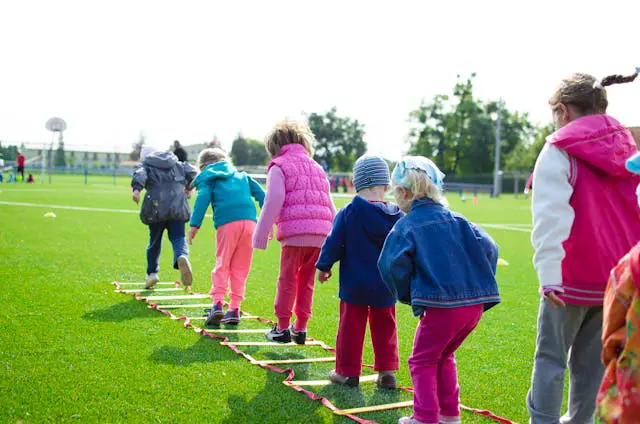
Positive psychology is the scientific study of what makes life most worth living.
It focuses on promoting happiness, well-being, and optimal functioning.
Teaching positive psychology to children can help them develop resilience, emotional intelligence, and a positive outlook on life.
In this article, we will explore the benefits of positive psychology for kids, strategies for building a foundation of positivity, and practical tips for fostering positive growth.
Benefits of Positive Psychology for Kids
Positive psychology for kids is gaining traction as a movement focused on nurturing children’s well-being, happiness, and resilience.
Here’s a closer look at the benefits of integrating positive psychology into children’s education:
Improved mental health
By implementing positive psychology interventions, children can experience a reduction in stress, anxiety, and depression.
These interventions equip them with effective coping mechanisms and emotional regulation skills, fostering better overall mental health and emotional well-being.
Enhanced academic performance
Positive psychology encourages the development of a growth mindset in children, which is associated with improved academic performance.
By fostering a belief in their ability to learn and grow, children become more engaged in their studies, persevere through challenges, and achieve better academic outcomes.
Increased resilience
Positive psychology empowers children with the tools and mindset to navigate adversity and setbacks effectively.
By promoting resilience, children learn to bounce back from failures, setbacks, and disappointments, emerging stronger and more resilient in the face of future challenges.
Better relationships
Through positive psychology practices, children learn valuable social and emotional skills that enhance their interpersonal relationships.
They develop empathy, compassion, and communication skills, fostering positive interactions with peers and adults and cultivating meaningful and supportive relationships.
Higher self-esteem
Positive psychology fosters a sense of self-worth and self-esteem in children, empowering them to recognize their strengths and capabilities.
By nurturing a positive self-image, children develop confidence, assertiveness, and a healthy sense of identity, laying the foundation for their overall well-being and success.

Building a Foundation of Positivity
Building a foundation of positivity in children is essential for fostering their well-being and resilience.
Here are some strategies to cultivate positivity:
Gratitude exercises
Encouraging children to practice gratitude can significantly impact their mindset and overall happiness.
Simple activities like keeping a gratitude journal, where they write down things they’re thankful for each day, or sharing what they’re grateful for at the dinner table can help children focus on the positives in their lives.
By regularly acknowledging and appreciating the good things, children develop a more optimistic outlook and a deeper sense of contentment.
Strengths spotting
Every child possesses unique strengths and talents waiting to be discovered.
As caregivers and educators, it’s crucial to help children identify and nurture these strengths.
By recognizing their capabilities and encouraging them to utilize their strengths in various situations, children gain confidence and a sense of empowerment.
Whether it’s creativity, kindness, leadership, or problem-solving skills, highlighting and celebrating their strengths reinforces a positive self-image and encourages continued growth and development.
Developing optimism
Teaching children to adopt an optimistic mindset is key to building resilience and coping with life’s challenges.
Encourage children to focus on the positive aspects of situations, even in the face of adversity.
Help them reframe negative thoughts into more optimistic perspectives and cultivate a belief that good things can happen, even in difficult circumstances.
By fostering optimism, children develop a resilient mindset that enables them to persevere through setbacks and setbacks with confidence and positivity.

Fun Activities for Positive Growth
Engaging children in fun activities aimed at fostering positive growth is a wonderful way to nurture their well-being and resilience.
Here are some enjoyable and effective activities to promote positivity:
Positive affirmations
Positive affirmations are powerful tools for cultivating self-confidence and a positive mindset in children.
Encourage them to practice positive self-talk by repeating affirmations such as “I am smart,” “I am capable,” or “I am kind” regularly.
By internalizing these affirmations, children develop a strong sense of self-worth and belief in their abilities, which can positively impact their overall outlook and confidence.
Visualization exercises
Visualization exercises help children harness the power of their imagination to visualize positive outcomes and overcome challenges.
Guide them through visualization sessions where they imagine themselves achieving their goals, facing challenges with courage, and experiencing success.
By vividly picturing positive scenarios, children develop optimism, resilience, and a belief in their ability to overcome obstacles and achieve their dreams.
Acts of kindness
Encouraging children to engage in acts of kindness is a heartwarming way to foster positivity and empathy.
Encourage them to perform simple acts of kindness, such as helping a neighbor carry groceries, writing thank-you notes to essential workers, or volunteering in their community.
Engaging in acts of kindness not only spreads joy and positivity to others but also fosters a sense of fulfillment, empathy, and connection in children.

Maintaining a Positive Outlook
Maintaining a positive outlook is essential for children’s overall well-being and resilience.
Here are some strategies to help them cultivate positivity:
Dealing with setbacks
Learning to navigate setbacks is a crucial skill for children’s emotional growth.
Encourage them to reframe setbacks as opportunities for learning and growth rather than failures.
Help them develop problem-solving skills by brainstorming potential solutions and encouraging them to approach challenges with a positive attitude.
By viewing setbacks as temporary obstacles rather than insurmountable barriers, children develop resilience and perseverance.
The power of playful breaks
Playful breaks are valuable for reducing stress, boosting mood, and fostering creativity in children.
Encourage them to take short breaks throughout the day to engage in fun and playful activities.
This could include playing outdoor games, building with blocks, or engaging in imaginative play.
These breaks provide children with an opportunity to recharge, relax, and return to tasks with renewed focus and energy.
Celebrating accomplishments
Celebrating accomplishments, no matter how small, is essential for boosting children’s self-esteem and motivation.
Acknowledge and praise their efforts and achievements to reinforce a positive sense of self-worth.
Whether it’s mastering a new skill, completing a challenging task, or demonstrating kindness towards others, celebrate their successes with enthusiasm and encouragement.
By recognizing their accomplishments, children feel valued, motivated, and confident in their abilities.

Conclusion
Teaching positive psychology to children can significantly improve their well-being.
By incorporating gratitude exercises and strengths spotting into their daily routines, kids develop essential skills for happiness and resilience.
These practices help them appreciate the good things in life and recognize their unique strengths, fostering optimism and confidence for a fulfilling future.
FAQs
Positive psychology is the scientific study of what makes life most worth living.
Positive psychology can enhance well-being, improve mental health, and boost academic performance.
Encourage gratitude, identify strengths, and develop optimism.
Practice positive affirmations, visualization exercises, and acts of kindness.
Teach them to deal with setbacks, take playful breaks, and celebrate accomplishments.


